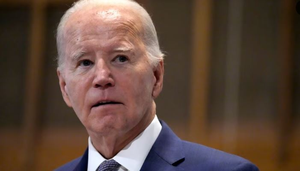America
The United States and Egypt's presidents meet to discuss the humanitarian situation in Gaza and the release of hostages.

May 25 :
U.S. President Joe Biden and Egyptian President Abdel Fattah El-Sisi spoke over the phone on May 25 about their ongoing efforts to resolve the humanitarian situation in Gaza and secure the release of hostages. It was El-Sisi's promise to open the Kerem Shalom Crossing so UN aid could leave Egypt that Biden praised.
According to the White House statement, Biden reaffirmed his commitment to reopening the Rafah border under terms that both Egypt and Israel could agree upon during the meetings. He also promised to dispatch a senior team to Cairo next week to continue the discussions.
The president of Egypt and I had a lengthy conversation today regarding our ongoing efforts to end the hostage dilemma and alleviate the humanitarian situation in Gaza," Biden wrote in an X post. I value his resolve to remove obstacles to the passage of UN aid over the Kerem Shalom crossing from Egypt.
The United States Secretary of State Joe Biden thanked Egypt's Prime Minister Sisi for his efforts to keep aid flowing to Gaza. The two heads of state also discussed fresh measures to end the hostage crisis and end the violence in Gaza, as well as a lasting truce. The two sides have committed to maintaining consistent communication, either directly or via their respective senior national security teams.
President Biden has promised to send a senior delegation to Cairo next week to continue conversations, and he has also indicated his entire commitment to back attempts to reopen the Rafah crossing under circumstances acceptable to both Egypt and Israel. At the outset of the crisis, President Al-Sisi worked tirelessly to keep aid flowing into Gaza from Egypt, and President Biden congratulated him again for his efforts.
In addition to discussing fresh measures to end the hostage crisis and bring about a permanent truce in Gaza, the two heads of state conferred on the matter. According to the statement, President Biden and President Al-Sisi have reaffirmed their joint determination to pave the way for a long-term, stable peace in the Middle East. Meanwhile, according to CNN, the top court of the United Nations has ordered Israel to stop its operations in Rafah, a city in southern Gaza, and to withdraw from the territory. South Africa accused Israel of genocide, citing "immense risk" to the Palestinian population, and the International Court of Justice (ICJ) in The Hague, Netherlands, issued the order on Friday in the case.
"Israel must immediately halt its military offensive and any other action in the Rafah Governorate which may inflict on the Palestinian group in Gaza conditions of life that could bring about its physical destruction in whole or in part," commented Judge Nawaf Salam of the International Court of Justice (ICJ). The 15-judge court has already issued preliminary judgements requesting that the international community, including the US, refrain from moving forward with the case three times this year.
The court noted that since March, when it had last issued a warrant for interim relief, the humanitarian crisis in Gaza had "even further" worsened. He added, "The humanitarian situation is now to be characterised as disastrous."
Following Israel's military attack on May 7, the ICJ noted that as of May 18, about 8,00,000 Palestinians had been forced to flee Rafah. According to CNN, the court ruled that Israel's pre-operation warnings to evacuate certain areas of the city were insufficient to "sufficiently alleviate the immense risk to which the Palestinian population is exposed as a result" of the invasion.
Following its October 7 attack on Israel, Hamas and other armed groups kidnapped captives, and the court has voiced serious worry about their whereabouts. Hundreds of thousands of Palestinians were forced to escape the city of Rafah this month when Israel launched its attack on the southern metropolis. Rafah had become a shelter for approximately half of the 2.3 million people living there, according to Al Jazeera. international organisations have highlighted how the Israeli operation has blocked off the enclave and increased the possibility of famine in the region. Rafah, located on the southern edge of Gaza, has also been the major route for relief.



































